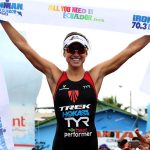It’s a frustrating cycle, isn’t it? You push yourself hard, whether that’s on the field, pounding the pavement, or grinding it out in the gym, and by the time you’re done, you’re wrecked. You drag yourself to bed expecting to crash instantly, but instead, you’re lying there wide awake. Your muscles are screaming for rest, but your brain is buzzing like you’ve had three cups of coffee.
I know the feeling all too well. After my weekly late-night futsal games, it’s the same story every time. My legs feel like jelly, but my head is still racing. Instead of slipping into deep sleep, I end up tossing and turning. So, what’s actually happening here? Why is falling asleep after an intense workout so tough?

The Fight-or-Flight Problem
Here’s the thing: your body doesn’t just hit the brakes the second you stop moving. A hard workout floods your system with adrenaline and cortisol, stress hormones that sharpen your focus and fuel your performance. Perfect for chasing down a ball in the final minutes, but not exactly what you want when you’re trying to relax afterward.
After futsal, I still feel that post-game high. My muscles ache, sure, but my body is stuck in overdrive. It’s basically a leftover survival response, keeping me on high alert when what I really need is to power down.
Timing Is Everything
The late-night timing doesn’t help. My games usually wrap up around 10 PM, which leaves me barely any buffer before bedtime. By then, my heart rate is still up, my body temperature is elevated, and those stress hormones are still swirling around. Combine all that, and sleep becomes an uphill battle.
When I exercise earlier in the day, especially with tough workouts, I notice a huge difference. I can push hard, recover, and still have time for my system to reset before bed.
Why Cooling Down Matters
For years, I made the rookie mistake of skipping cooldowns. I figured, “I’m exhausted anyway, I’ll just collapse later.” Big mistake. Taking even 10 minutes to walk it out and stretch makes a massive difference. These days, I make sure to loosen up my legs and hips after games. It’s such a simple routine, but it helps bring my heart rate down and signals to my body that the hard part is over.

What You Eat (and Drink) Counts
Recovery snacks aren’t just about muscles, they can make or break your sleep, too. I used to grab something sugary post-game, thinking it’d perk me up, but all it did was leave me jittery. Now, I keep it simple: hydrate properly and go for a balanced snack with protein and carbs. It helps my body recover without sending my energy levels on a rollercoaster.
Building a Wind-Down Routine
Even with all that, I sometimes still struggle. That’s when having a solid bedtime routine makes the difference. A warm shower works wonders, the drop in body temperature after you step out helps nudge your body toward rest. I also like doing some deep breathing or progressive muscle relaxation if I’m still wired.
And yes, I had to tackle my phone habit, too. Scrolling until midnight never helped. Now, I cut screens at least half an hour before bed. Same goes for caffeine, I’ve learned the hard way that anything after mid-afternoon is a gamble for my sleep.
Conclusion
Falling asleep after a tough workout isn’t always easy, but it’s definitely manageable. Pay attention to how your body responds, tweak your routine, and give yourself time to come down from that post-training high. Trust me, when you wake up the next morning actually rested instead of groggy, it’s worth the effort.




